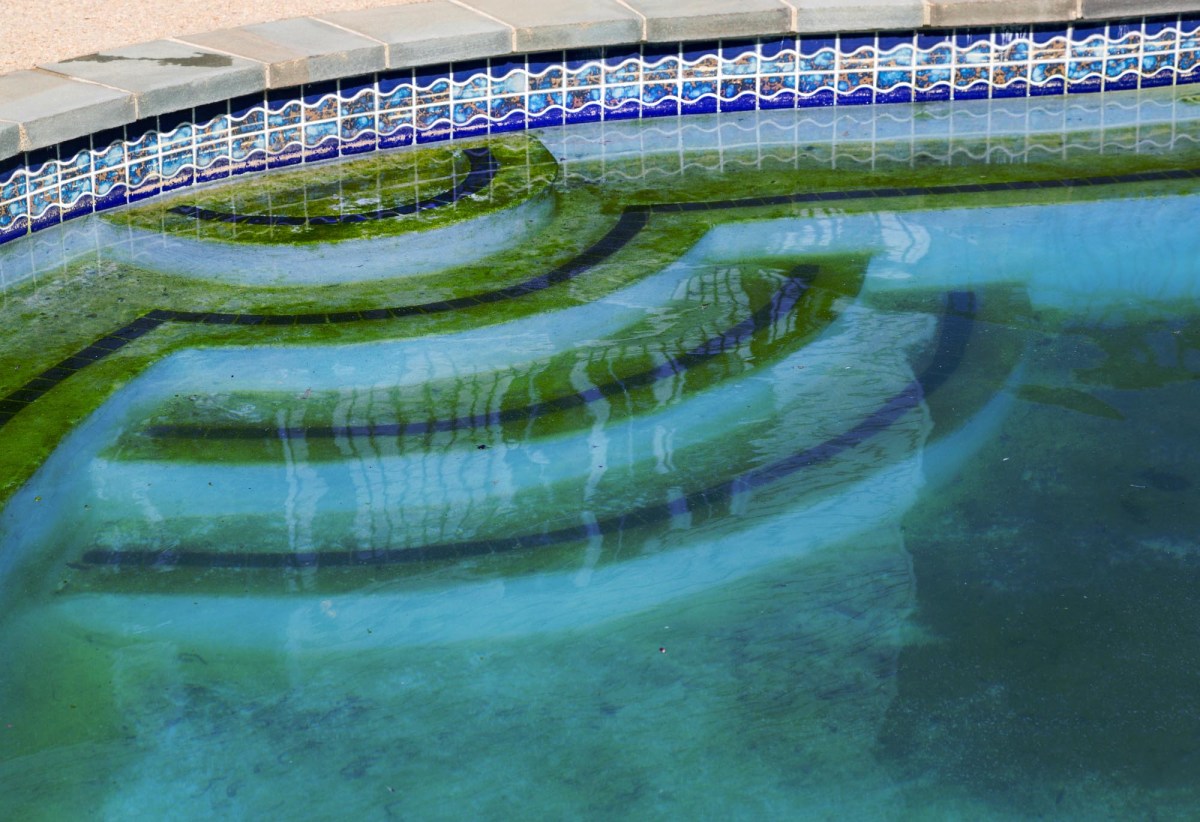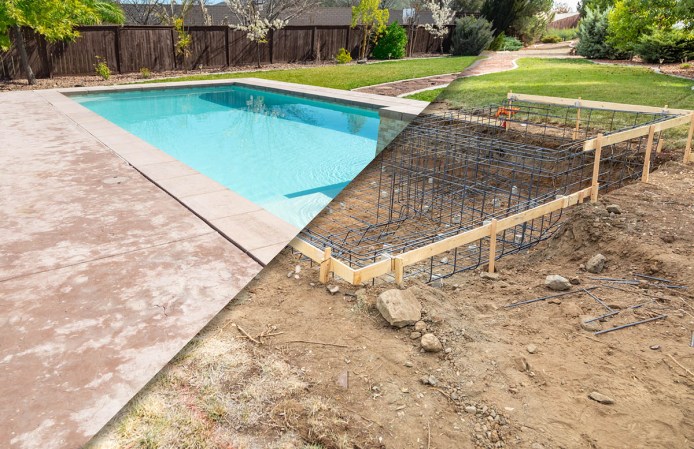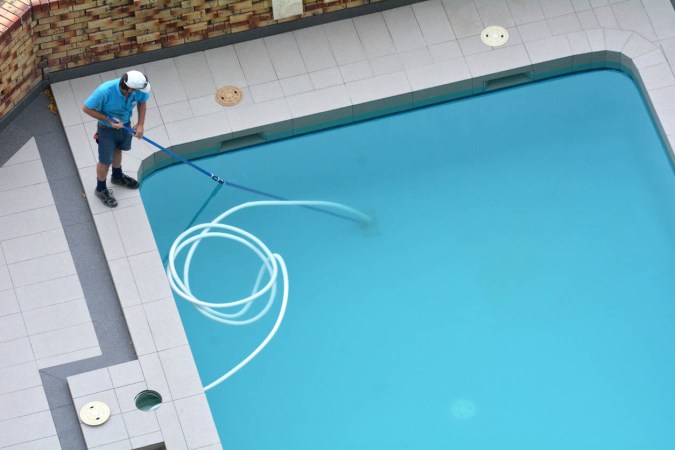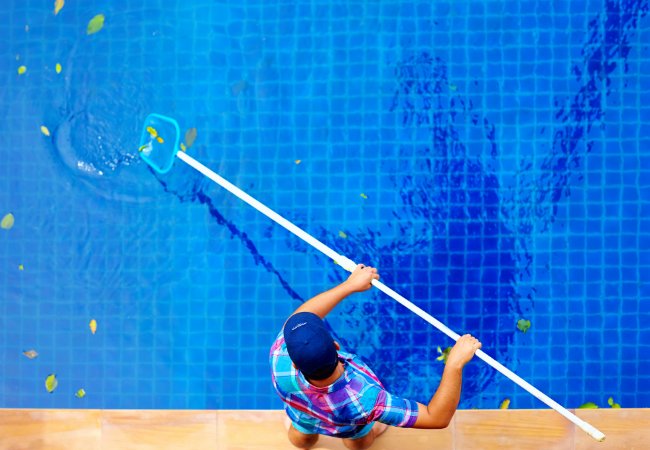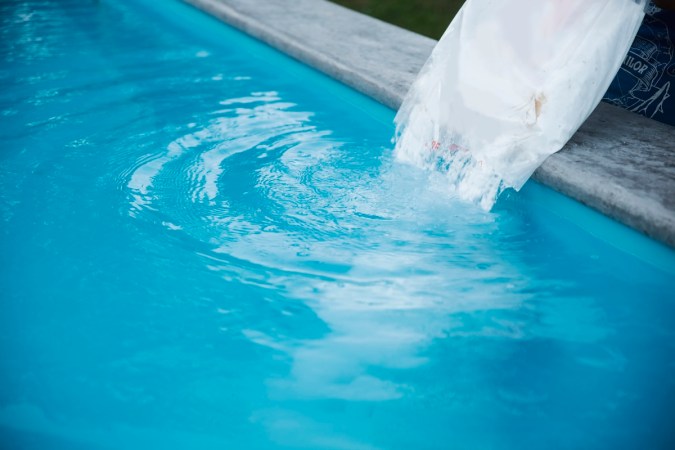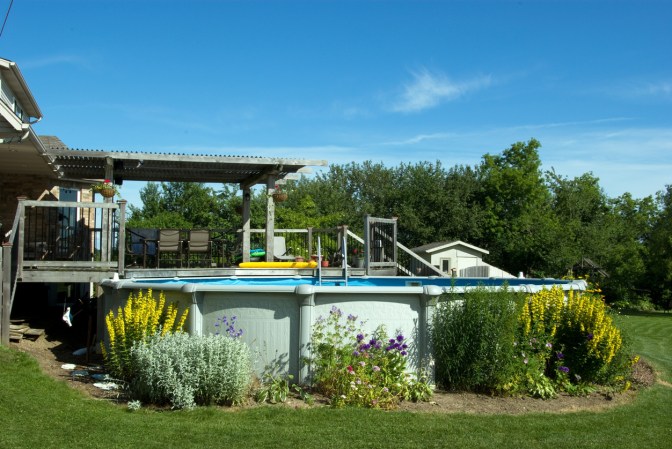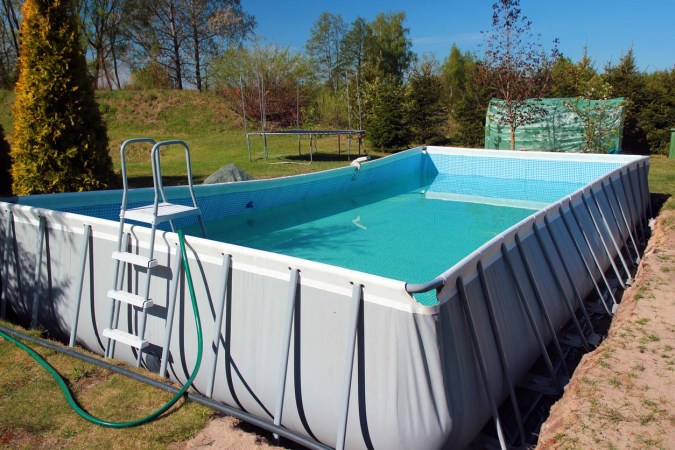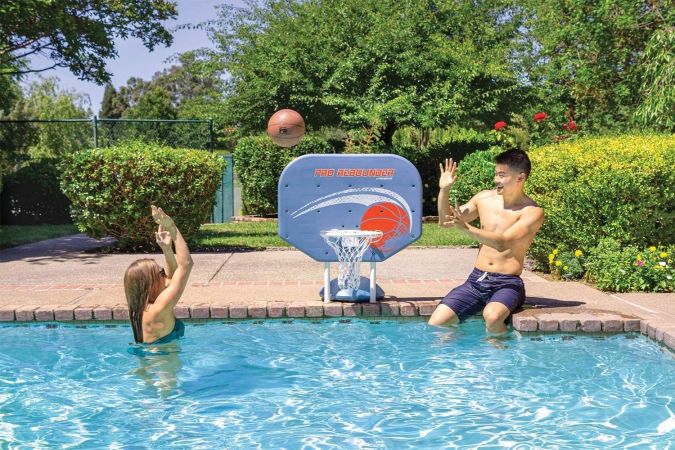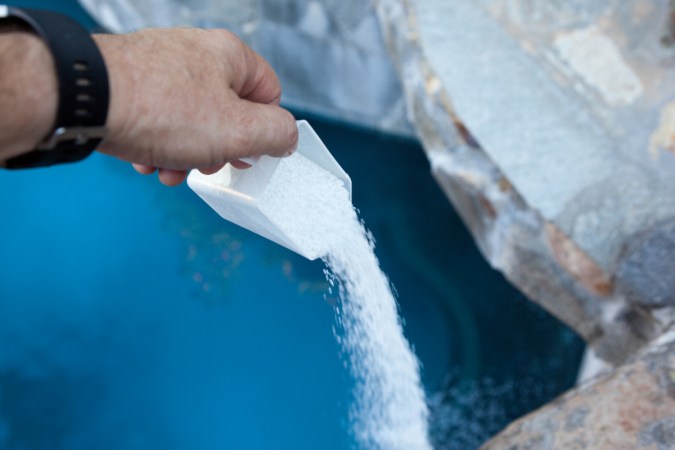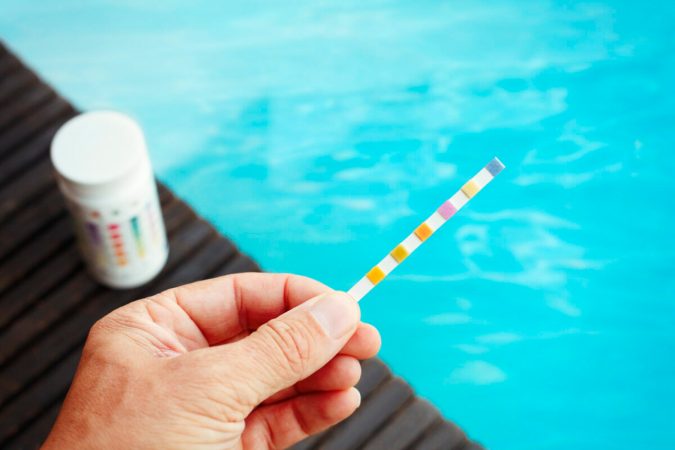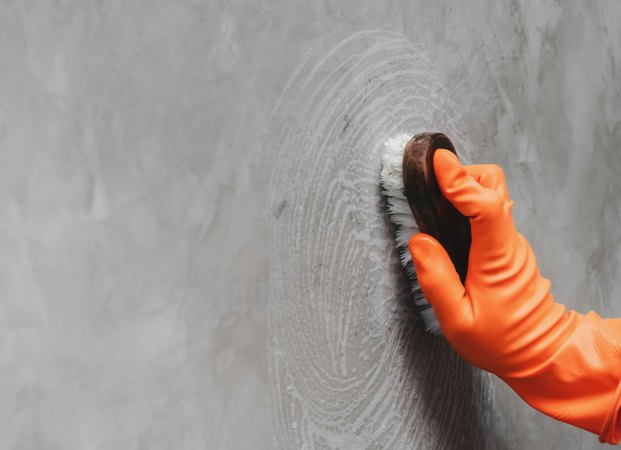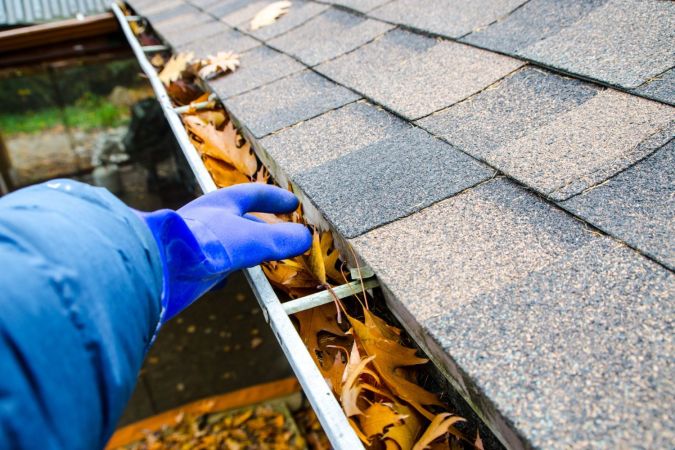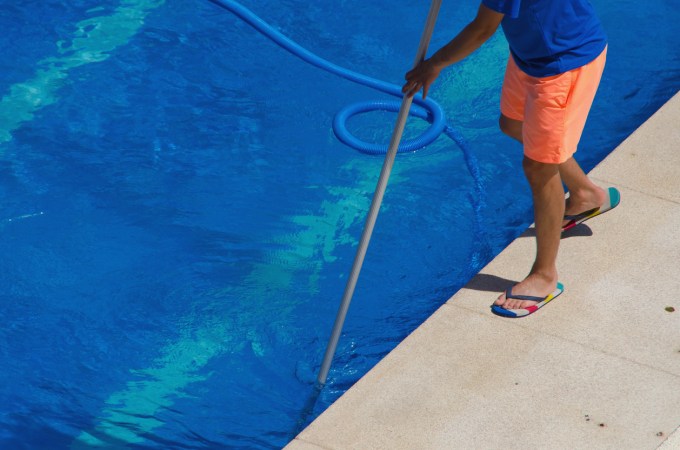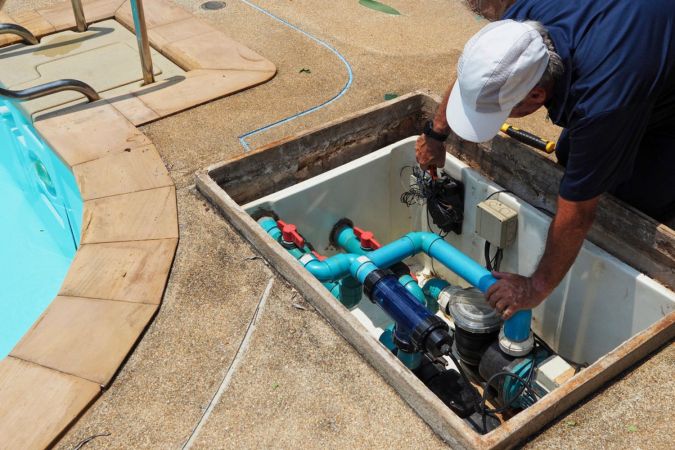We may earn revenue from the products available on this page and participate in affiliate programs. Learn More ›
Q: We went on vacation for a couple of weeks and came home to a cloudy pool. We serviced it in the spring, and we’ve used it several times already, so why is my pool cloudy?
A: Servicing a pool at the beginning of the summer is a good idea to get the pool in great shape for family fun. Despite the spring maintenance, pools can still become cloudy quickly. Fortunately, there are several easily identifiable reasons and solutions for homeowners asking, “Why is my pool cloudy?” Broken or clogged filters, growing algae, pH problems, and chemical imbalances can cause a pool to go cloudy, and they can happen whether the pool has been heavily used or not.
There may be low free chlorine levels.
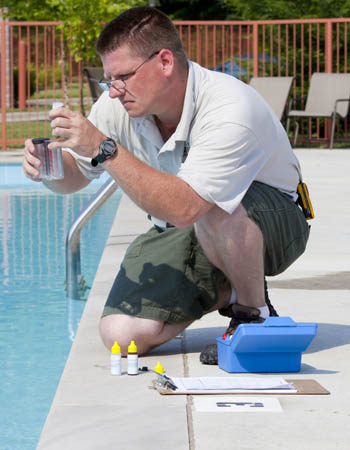
If your cloudy pool has an overwhelming chlorine odor, there may be less free chlorine than there should be, and the water isn’t getting sanitized. Chlorine pool treatments have more than one kind of chlorine working in tandem to kill microorganisms. If they’re out of balance, the water won’t be sanitized or clear.
You can use a chlorine test strip to identify if the free chlorine is too low (the ideal is 3 ppm). If so, the pool will need a shock treatment. For homeowners who use a saltwater chlorine generator, the same applies. Shut off the generator while applying a manual shock treatment to rebalance the pool before it begins growing algae.
There may be an issue with the water filter.
Pool filters help prevent debris and particles from lingering in a pool. Filters need to run at least 8 hours a day to keep the water circulating to collect dirt and debris. If the pool has bottom drains, turn them on to remove any sediment while the filter runs. Sometimes these filters or valves can get clogged or worn out. Try removing the filter and cleaning it, then backwashing it until it runs clear. Replace filters at least twice a year to keep pools clean and fresh.
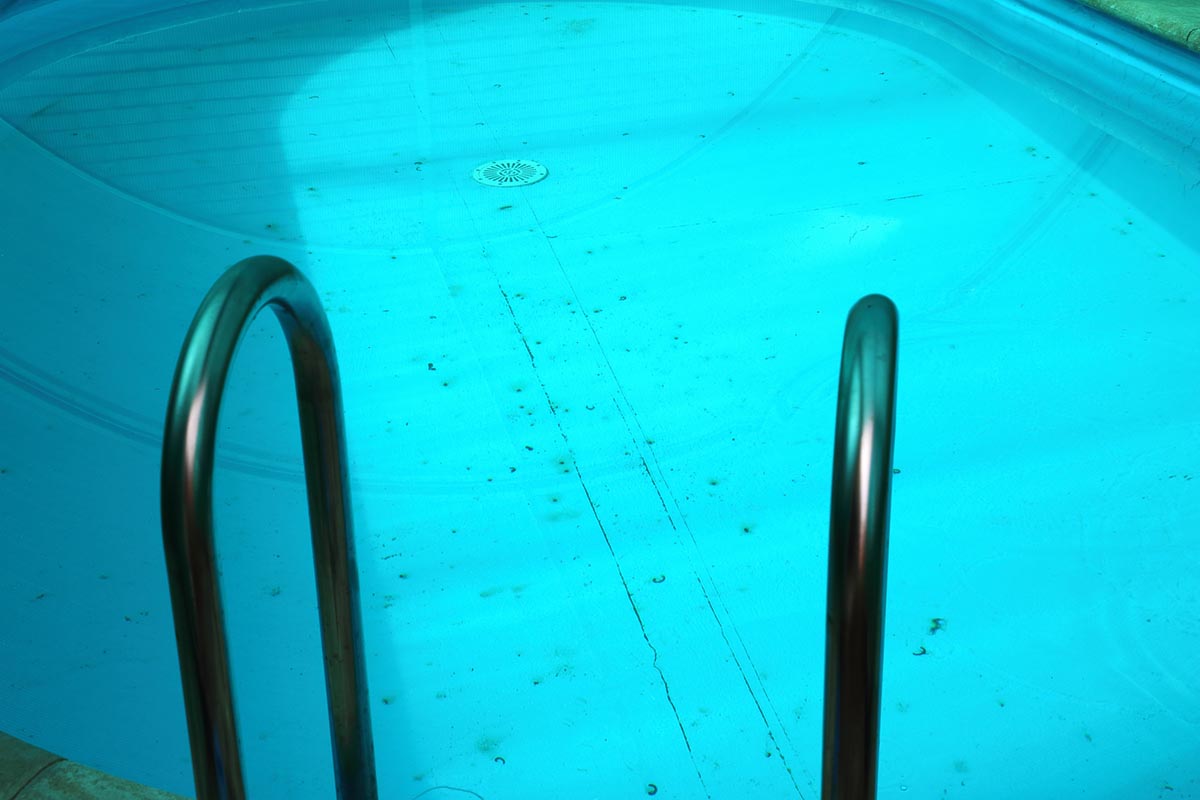
Trace amounts of algae can make pool water cloudy.
Algae is an unwelcome sight for any pool owner. Algae occur naturally and are found in plant and soil debris. If you catch algae in the early growing stages, it’s possible to eliminate it before it becomes a significant problem. Green algae photosynthesize quickly, especially on sunny days.
Sometimes chlorine treatments can’t keep up, and an algaecide or pool clarifier can target growing algae, though too much can cause foaming or copper deposits in the water. Be advised that an algaecide is only effective before a significant algae bloom occurs and may not work on black algae. In these cases, call a local pool service professional.
Very high calcium hardness levels can cause pool water to be cloudy.
Many outdoor pools have hard water, which contains minerals like calcium and magnesium that leave residue behind. If a pool has a cloudy appearance that just won’t dissipate, high calcium levels may be the issue. Excess calcium will visibly scale the pool walls, and it will likely clog the filter with hard mineral deposits. A clogged filter will not do its job. In this case, the pool will need to be partially drained and refilled to keep the optimum calcium level between 200 and 400 ppm.
The water’s pH may be too low or too high.
Part of regular pool maintenance should include testing the water with pH test strips. Ideally, a pool should have a pH balance of 7.6. Lower than 7 indicates an acidic pool, but higher than 7.8 is too alkaline. A pool measuring at either extreme will likely be cloudy. High pH often indicates excess calcium deposits, and low pH often indicates more chloramine and less free chlorine. Treat the pool accordingly, depending on the pH.
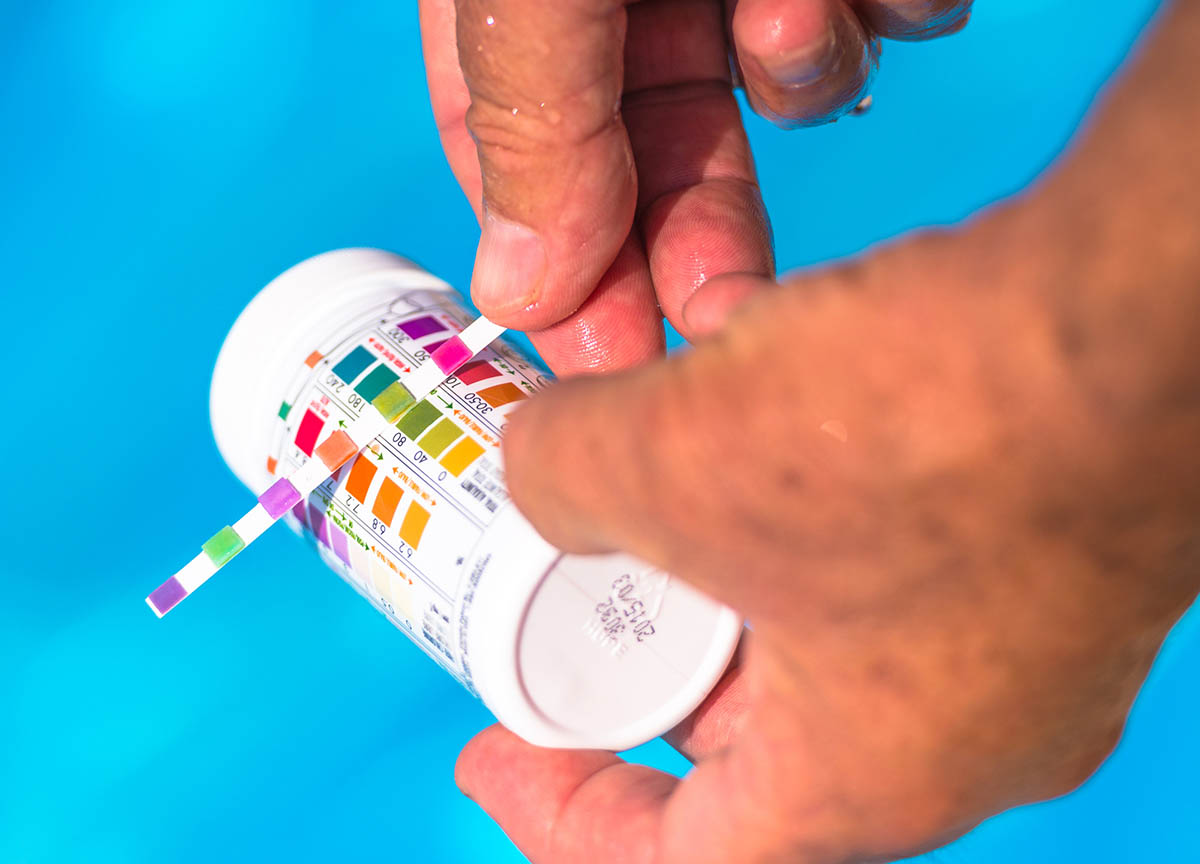
Chemical imbalances can make pool water cloudy.
In some cases, trying to identify which chemical is out of balance can be a challenge you prefer to leave to a pool maintenance company. Chlorine is not the only chemical to worry about; there’s also bromine, phosphate, and cyanuric acid. Pool test kits can help to check for a chemical imbalance.
Heavy rainfall can make pool water cloudy.
Outdoor pools are at the mercy of nature’s elements. Excessive sun affects the quality of pool water just as heavy rainfall can. If a pool received a hefty amount of rainfall, it could turn the water cloudy since it diluted the water and caused free chlorine levels to drop. In some cases, excess rain may even push sediments into the pool and overwhelm the filters with debris. Some debris contains phosphorus which promotes algae.
Flora and fauna in the environment can be the culprits.
Insects, birds, and mammals (both pets and wild friends) sometimes dip into a pool for refreshment. They leave behind dirt, waste, and contaminants that can throw off the pH balance or clog the filter. Trees drop leaves and pollen that can also cloud the water. A skimmer helps collect debris from the surface, but check chlorine levels frequently in areas where animals, insects, pollen, and debris often gather in the pool.
Maintaining a pool is not always an easy task, but it’s worth it to enjoy a dip in crystal-clear water. If the maintenance becomes overwhelming, or if pool issues are stumping you, a professional can help keep the pool at its best all summer long.
